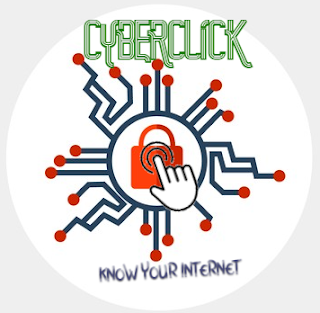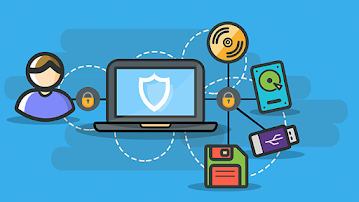Internet Safety Rules
Rules To Be Followed:
1. Keep your confidential data offline
Identity theft cases made up the biggest single category of crimes reported to the FTC in 2020.
But cybercriminals cannot access or steal your personal information if it’s nowhere to be found on the internet.
That’s why some data — such as your Social Security Number — should just never go online. However, when you still have to share it, be sure to send it as an email attachment and encrypt the file before sending.
2. Check a website’s reliability
As of January 17, 2021, Google had registered more than 2 million phishing sites. But how do you tell a reliable site from a fishy one? First, look at the address line: It should have a little padlock at the beginning — this means the connection is encrypted.
Second, review the look and feel of a website. Below are some criteria to indicate if a website is safe to use:
- pages look neat and are free from mistakes
- grammar in the body text and address line is consistent
- all images fit the screen’s width correctly
- ads feel organic and don’t obscure the main content
If the website meets all this criteria, then it is likely to be safe to use.
3. Use a strong password
Using strong, unique passwords offers good online protection. Strong passwords should contain at least 12 symbols and feature a mixture of letters (upper and lower case), numbers, and special characters. A recent cybersecurity study showed that passwords under 10 characters could be cracked within an hour. However, those containing at least 12 characters will take about a year to break (and 15-character passwords will withstand a millenium of brute-force attacks).
4. Use two-factor authentication
2FA or two-factor authentication is used to provide your account with an additional layer of protection. When you sign into your account with 2FA, you must not only enter the correct password, but also an additional code generated earlier or sent to your device. If someone just gets a password for your account, they will not be able to access your profile without entering this additional code.
5. Avoid suspicious online links
There’s a certain kind of online content you should avoid: suspicious links from untrusted sources and spam emails, click bait, online quizzes, tabloid headers, ‘free’ offers or unsolicited ads.
If it is a malicious email attachment, the text will not mention the file. Instead the message will just say something like ‘open the attached file and let me know what you think’.
On a website, make sure both text and accompanying links are on the same subject. If you click a link to read more about polar bears and instead of seeing the Arctic, you get a ‘success story’ about a celebrity who lost weight or gave up smoking overnight, then quickly leave the page.
6. Keep your computer updated
It’s important you use the latest versions of your operating systems and apps. Especially if these apps contain your payment, health, or other sensitive info. Developers are constantly working to make products safe, monitoring the latest threats and rolling out security patches in case of vulnerabilities. So, accept their work, update your software regularly, and do your bit to keep yourself secure.
7. Beware of free Wi-Fi and downloads
Free downloads, online services or Wi-Fi networks are the most common sources of online security problems. If you decide to go for a free solution, make sure it has a reliable reputation: research the name of the service or software and you will probably find some feedback on how it works.
Using free public Wi-Fi is not always safe, but sometimes we need to go online urgently. Remember to avoid accessing your bank accounts or completing purchases via free Wi-Fi. If you do need to do this, use VPN software to get protection for the data you send over the unsecured network. If it’s not urgent, then it’s better to postpone any important transactions until you get home.
8. Double check online information
It’s easy to get lost in the flood of online information we’re exposed to everyday. If you find something questionable, do your own research to find out the truth or - at least - make up your own mind on the matter. Reliable websites should have references to the original information source. Suspicious pages won’t offer any references at all.
9. Secure your internet connection with VPN
A VPN makes your internet connection private by changing your IP address. It also hides the sensitive data you send over, including bank details when you’re shopping online and other private information that can be compromised.
“ A VPN will hide your bank details when you’re shopping online and other sensitive information that can be compromised ”












Comments
Post a Comment